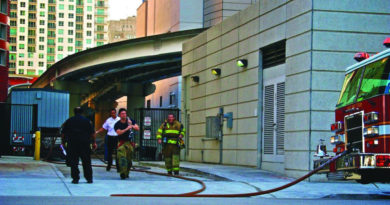What To Expect From Miami Dade College’s Transition To Online Classes
Now that Miami Dade College’s classes will move online, here’s what to expect:
On March 30, students will begin taking classes through a number of different communication and video-conferencing platforms such as Blackboard, Zoom, email, among others.
Classes will continue online at least until the end of the spring semester, which runs through May 1, according to Interim College President Rolando Montoya. At this time, it’s too early to know if the summer term will be online.
Most classes will resemble the same format as ones provided by MDC Online—assignments, lectures and exams will be available through an online portal.
Michelle Grant-Murray—a dance professor at Kendall Campus—plans to use Zoom, an online video conferencing site, to teach her modern dance and dance composition classes. She feels the switch will be challenging for students that are used to seeing their professors in a classroom setting.
“The challenge lies in trying to get students to engage in the technological—when I mean technology, I mean computers, online courses—as it relates to the physicality of dance,” Grant-Murray said.
In Jairo Ledesma’s sociology class, service-learning projects have become research papers about social issues and in-person visits to local museums have become virtual tours.
“It’s something to get used to. It’s the new normal,” Ledesma said. “I feel bad for the students that didn’t get what they thought they were going to get.”
Most courses will be available online, with students able to receive full credit.
“I’m glad they didn’t close classes completely because a lot of people would’ve been in trouble,” said Zayna Byran, a nursing student at Homestead Campus.
However, some classes will not be available online because the curriculum is too interactive and requires hands-on instruction, according to Juan Mendieta, director of communications at MDC. Some health science classes will be canceled because they are taught in clinical settings that are not open.
Law enforcement classes that use physical contact in the curriculum, provided by the School of Justice, Public Safety and Law Studies, will be placed on hold until further notice. Theoretical classes, such as criminal law or criminal scene technology, will be offered online.
However, MDC is determining different options for courses that can’t be replicated online, depending on when a student is scheduled to graduate and what program they’re enrolled in. Faculty will also be given input on the process.
Some options students have include withdrawing from a class or receiving an incomplete.
However, incomplete grades come with restrictions. They are given to students that have completed two–thirds of a class, are given by professors and say the student has a valid reason for not being able to finish the class.
There must be a signed agreement between the student and professor that lists what they must do to finish the course with an established timeframe.
In addition, the College has extended the deadline for students to withdraw from a class to April 9. However, withdrawing from a class could result in a student having to repay part of their financial aid award, according to the College’s financial aid page.
But College officials say withdrawing from a class should be considered a last resort after consulting with a financial aid advisor.
Refunds aren’t usually given for classes that students withdraw from, but students can request a drop with a full refund if they can provide documentation of an extraneous circumstance that barred them from finishing. To submit a Student Petition form, click here.
For students that don’t have computers at home, the College gave out hundreds of free laptops this week to students at drive-thru pick-ups located at North and Kendall Campus. Students from all campuses were served.
The College is working to acquire more devices to give out to students. Students who need a laptop should be in contact with their professor; it’s advised that students only reach out if they absolutely need a device since there is a limited amount.
Students were selected to receive the devices based on a college-wide internet connectivity survey sent out on March 7. The College directly contacted the students who were selected to receive laptops.
Mendieta would not say how many laptops will be given out or how many students reported having a need.
“We’re trying to acquire as much inventory as possible, and we’ll find a way to make it work,” Mendieta said. “I’m not going to speculate at this time. When we cross that bridge and we know if there’s a shortage, we’ll then determine the next steps.”
Students are encouraged to check their MDC emails for any updates on the transition. Resources for the transition are available on the Student Support for Remote Learning page.




